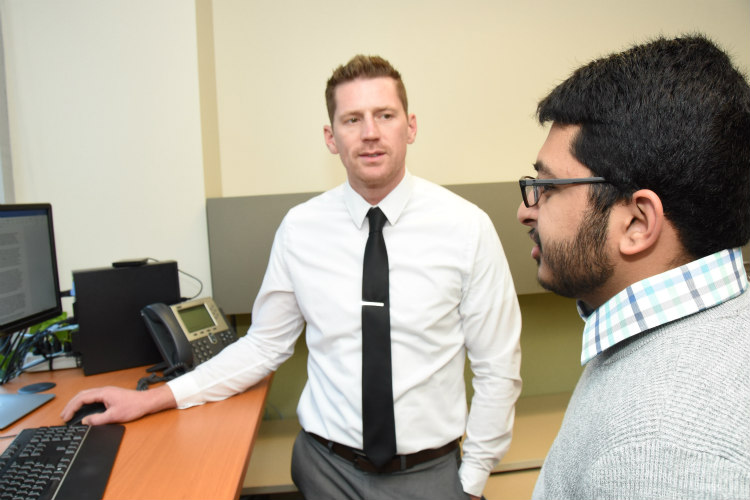The University of Missouri-Kansas City took another step forward in shaping the future of health care. In the fall, it welcomed the first class of students into the new Bachelor of Science in Public Health degree program.
The goal is to integrate public health into the community and improve health outcomes for the population at large. The new program is based at the UMKC School of Nursing and Health Studies. While a nurse or doctor will treat individuals, public health professionals look at prevention measures that can help people stay healthy. According to the National Center for Health Statistics, over the past century, public health efforts are responsible for 25 of the nearly 30 years of improved life expectancy.
UMKC Public Health Program Director Joseph Lightner sees great value in all health care students getting a taste of what public health has to offer.
“Medicine alone can’t solve all the problems," he said. "Public health brings everyone to the table and having all disciplines interact is the only way public health issues will get solved.”
Prevention plays a big role and that is primarily what drew public health student Kinzie Aulgur to the program. She was initially pursuing a path in nursing, but it was her experience in hospitals that began to change her thinking.
“So many of the people in the hospitals were sick due to preventive diseases and I wanted to do something to help them avoid the hospital altogether,” said Aulgur. “I wanted to go directly to the source, and when I heard about the public health program at UMKC, I knew it was a perfect fit.”

Recently, a group from the program; including Lightner and another one of his students, Krunal Bombaywala; attended the American Public Health Annual Meeting. The national conference is the largest for public health professionals with nearly 13,000 attendees.
Lightner said these experiences can be instrumental in a student’s career path. When he was an undergrad at Kansas State University, one of his faculty members suggested that he present their research at a large national conference.
“That trip was the reason that I applied to graduate school and started a career in research,” said Lightner. “Learning from experts in the field and gaining exposure to the newest research is essential to getting the next generation of public health practitioners and researchers excited about research and advocacy. Doing so will contribute toward the goal of making UMKC the premier undergraduate research institution for public health.”
According to Lightner, the program works to get its students doing the work of public health right away. The goal of the program is to get boots on the ground working on public health outcomes immediately.
“Medicine alone can’t solve all the problems. Public health brings everyone to the table and having all disciplines interact is the only way public health issues will get solved.”
The culmination of the program is the capstone course, where seniors in the program choose what public health entity they’d like to work with and then effectively evaluate their processes and design thinking. The students do the work that consultants in the field would perform. They provide the entity the data from their research and gain valuable real world experience.
Aulgur was able to incorporate her capstone project into the work she was doing as the gender violence prevention intern at the UMKC Women’s Center. She is evaluating the effectiveness of the programs that the Women’s Center provides and looking at ways to get more students involved with the center. Once she’s finished with her research, she’ll present that data directly to the Women’s Center leadership.
That research component is critical throughout the program, not just during the capstone course. A number of the public health students will be presenting their research at upcoming UMKC Undergraduate Research Symposium on a number of innovative topics that cover a wide array of issues. The students will present on racial justice in the courts and incarceration system, the link between sodium intake and cardiovascular disease, and e-cigarettes usage, among other interesting topics.
Bombaywala says public health’s focus on the entirety of the health care spectrum is making him a more well-rounded health care provider. He plans to pursue a career in dentistry but appreciates how his pursuit of a public health degree is giving him a deeper understanding of the health care system as a whole.
“As a future dental student, the public health program has provided me a perspective beyond just clinical,” said Bombaywala. “I’ve been able to collaborate with a variety of health care providers so I will have a better understanding of the entirety of the health care issues my future patients may be facing.”

